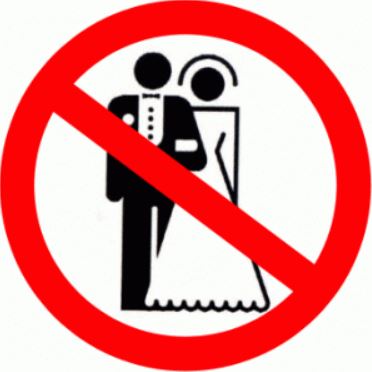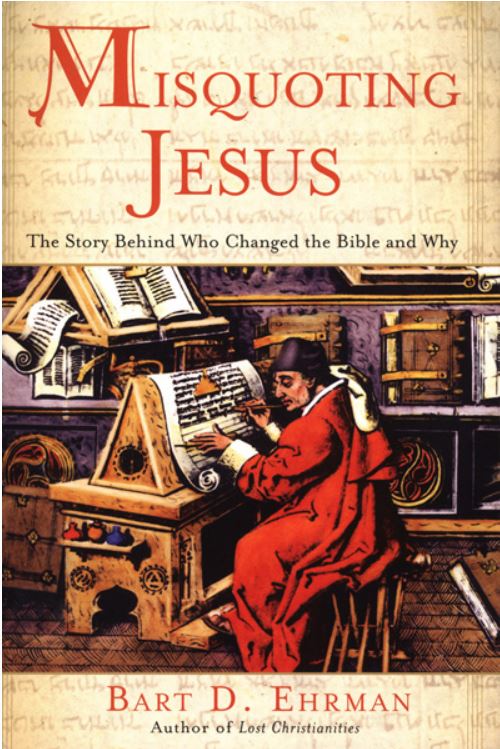Once in a while I find a work from another scholar that is so important and so crucial for women to read, that I just cannot help myself in sharing it here on my blog. Such is the case with a book written by Adele Hebert, and independent scholar from Northern Alberta, Canada.
When I first purchased her book, Every Woman & Child, and began to read it, it did not bring anything new to light that I did not already know UNTIL I was over half way into it. From that point on, she had my attention until the end, in the most amazing way. However, most women and men have no idea how prevalent WOMEN are throughout the Bible and about the important roles they played in the early church! They were disciples, leaders, preachers, business women, etc. So, for the majority, all that Adele covers in the first half of her book WILL be new to them. Please keep that in mind.
Throughout the world, women are being forced to stay in abusive marriages by religion because of changes in translation that prevent them from getting a divorce. Many live in bondage and abuse because of this. Women have no idea that God made provisions for them to keep them from being abused by men! Throughout the many articles on this blog, I have tried to expose this fact: Men have PURPOSELY written women out of scripture and translated scripture in such a way as to point women into a place of subjugation to men, regardless of how evil the men may be! I feel that this book covers the issue of “putting away” and divorce as well as the subject of removing women from places of leadership, authority and autonomy in scripture, superbly. Subsequent chapters until the end are worth the read and, in my opinion, more than worth the price of the book.
Because of how important this topic is to women, I have asked permission from this author to allow me to offer a preview of her chapter on divorce and then cover two other chapters in subsequent articles. She has so graciously granted my request! Ladies, this is for YOU. You DO NOT have to live in bondage to man-made religious dogmas any more. “Ye shall know the truth and the truth shall make you free.” “If the Son therefore shall make you free, ye shall be free indeed!”
***************
(To purchase a copy, click on the Title of the book below)
“You don’t have to die for him; I already have.” – JESUS
Let me say this: I am not against men; I am against injustice, from any gender, or any podium. There are some excellent men out there who have strong values, who work hard to defend human rights and who try to improve the conditions of this world. I thank God for them. We really need more of them.
Let me also say that I am not promoting divorce. How I wish that all marriages were happy and peaceful. Divorce is very painful, especially for children, but living with controlling or violent men traumatizes much more. Do you really believe that God prefers people to stay in an abusive marriage rather than to get a divorce?
“Even though God instituted marriage, He does not approve of ALL marriages.” – Stephen Gola, DIVORCE: God’s Will? (Trafford Publishing, 2005) www.divorcehope.com. You will want to read what Stephen teaches about boundaries when submitting. He also proves, with scripture, who is a True Widow. Remarkable book!
Three reasons for divorce, from a woman’s perspective: first, God does not want His daughters to be abused (forced to stay); second, God does not want His daughters to be abandoned (forced to starve); third, men are to give their wives financial security, half of the matrimonial property.
I am deeply concerned about the destructive teachings regarding submission, divorce and remarriage; they have done so much damage. Religion has a direct influence on society’s attitudes of power, authority, subordination and women’s sexual status. Why are Christian men battering their wives?
Even if there is no physical violence, a vast number of marriages are a living hell, where women live in constant fear and have no control of their lives. They get yelled at and threatened regularly, are belittled and blamed beyond reason. Some women are given almost no money, their friends and family are restricted, and they are forced sexually. Children have to listen to the fighting and everyone walks on eggshells.
When religions teach that women must be silent, they lay the foundation for men to be abusive to their wives. When religions remain silent about the accountability of men towards women and children, they play an enormous role in enabling men to be controlling and bullies in the home.
There are many studies that prove the negative effects of divorce, but we don’t hear much from the religious leaders about the women and children who are living with anger and violence. Yes, there are some men who are abused and cheated on, and it all hurts, but we cannot ignore the statistics. Countless women are coerced into staying with their abusive husbands, only to suffer more, affecting them and their children for generations. Children who witness violence in the home are usually violent when they grow up. Boys are victims as much as girls; they just don’t talk about it until much later.
Probably the most damaging word in our bibles for women is ‘submit.’ Jesus never used that word. Submit is a swear word to most women, and we usually only hear half of the sentence. Women are being deceived when they are told to submit. “Support” is a much better translation; then no one is put in a slave position. Even the words “learn in silence with all subjection” are demeaning. “If a preacher talks about submission, then he should be prepared to address abuse in the same sentence.” – Maryanne Rempel. God does not want His daughters to be degraded.
Probably the most damaging teaching today is “God hates divorce.” That belief locks people in marriage, and for some it is unbearable, even fatal.
First of all, we need to accept that almost all bibles have mistranslated the words “put away.” The false teachings about divorce all stem from Malachi 2:16. Most modern bibles say, “God hates divorce,” but they Used To Say, “God hates the putting away.”
Mal 2:16 For the LORD, the God of Israel, saith that he hateth putting away: for one covereth violence with his garment, saith the LORD of hosts: therefore take heed to your spirit, that ye deal not treacherously. King James Bible
*An extremely important margin note about the words “put away” in Luke 16:18 is found in the Geneva Bible 1599. The margin reads, “that is, not Lawfully divorced.” http://www.genevabible.org/files/DailyScripture/Luke16Footnotes.htm
“PUT AWAY” DOES NOT MEAN “DIVORCED.”
“PUT AWAY” MEANS “SEND AWAY.”
If the wife was only “put away” (not divorced yet), and if she found someone else, she would be committing adultery against her husband (for the wife only), because she was still legally married, (still his ‘property’) and she would likely get stoned to death.
We are being deceived into thinking that God hates divorce, as if it’s the unforgiveable sin. God hates men “putting away” their wives!
Putting away is the final club of abuse, the getting rid of a wife and not giving her the matrimonial settlement. That’s what God was angry about in Malachi 2:16. Men had dealt “treacherously” and with “violence” – their wives were cast away empty-handed!
In biblical times, the worst words for women were “put away.” To be put away damaged the whole family and, consequently, all of society. Men were accustomed to just sending away their wives when they wanted to get rid of them, and then getting another one.
A woman who was still legally married but abandoned by her husband was in a tragic, hopeless situation. Forced to stay celibate, her only options were begging, prostitution or starvation!
Our God, through Moses, instituted the divorce certificate in Deut 24, for the protection of the wife, to ensure her a matrimonial settlement, and to enable her to get remarried.
Deu 24:1 “When a man takes a wife and marries her, and it happens that she finds no favor in his eyes because he has found some indecency in her, and he writes her a certificate of divorce and puts it in her hand and sends her out from his house,
Deu 24:2 and she leaves his house and goes and becomes another man’s wife,
Deu 24:3 and if the latter husband turns against her and writes her a certificate of divorce and puts it in her hand and sends her out of his house, or if the latter husband dies who took her to be his wife,
Deu 24:4 then her former husband who sent her away is not allowed to take her again to be his wife, since she has been defiled; for that is an abomination before the LORD, and you shall not bring sin on the land which the LORD your God gives you as an inheritance.
Divorce and remarriage are woman’s rights. Being “put away” was not only a disgrace; for many, it meant death. God saw the suffering of those “put away” wives. Moses commanded in great detail, twice (Deut 24:1, 3) that if a man was displeased with his wife or if he turns against her, he had to first write out a divorce certificate, which included the property settlement, then put it in her hand and after that he could send her away. If something is repeated in the bible it is for confirmation and clarity.
God does not want women to stay in an abusive marriage, nor does he want them to be destitute. Children are on the front lines here. God knows they are greatly affected by how their mother is treated.
Notice that it does not mention adultery or fornication, only that the husband was displeased with his wife. This does not preclude that the woman did anything wrong. Divorce is a safeguard for women, a protection against having to live with a man who did not want her. If divorce was not allowed, women would have been in grave danger, “lest, if they were not permitted to divorce their wives, they should murder them,” – Matthew Henry Commentary.
God commanded divorce so that women can get away from their abusive men and get remarried. It is a way out for women. Men had to be commanded to give their wives a divorce, because God knows how much men detest having to divide half the matrimonial property and especially how they loathe giving women their freedom, to be with another man. Men kill for those two reasons. Yes, women kill too, but we all know the statistics that men are much more violent than women.
After a divorce, God decreed that women are allowed to get remarried, even if the husband is still living (Deut 24:2). The only stipulation is that the “former” husband cannot take her back, which meant he was alive; she was not a widow (Deut 24:4). Guidelines had to be made because God did not want women to be passed around and used. This proves that people are allowed to get remarried after a divorce. It was also a warning for the husband to be very sure of his decision, because he could not get her back, ever. These are God’s laws, not man’s.
God instituted divorce as a woman’s entitlement so she could find another husband who loves her. In biblical times, men had the responsibility to take care of the women and children. Obviously, a woman who is sent away is not being cared for. That is why God commanded divorce as a woman’s right. The “put away” wife had no money, she had to remain celibate and she could not remarry, which left her in a very life-threatening situation. One can only imagine how the children fared if they were with their mother.
Big question: Why were the men only sending their wives away, without a divorce? If the certificate was only a matter of granting permission so she could get remarried, the men should not have complained about it, because they wanted to send the wife away in the first place.
It’s about Money!!!
Without a settlement, women were destitute. Women had no means for survival. Divorce always involves division of property. At least, if she got her divorce, she would have some finances, which would also make her quite eligible to remarry. She would not be abandoned, forced to starve.
Some might object to this teaching of divorce and remarriage and say that was only in the Old Testament, but Jesus always asked, “What did Moses command you?” (Matt 19:7, Mark 10:3)
Others might object to the property part; they say the divorce was only to enable the woman to get remarried, but what good is a piece of paper? You can’t eat it. Women need more than a piece of paper.
The daughters of Zelophehad were given property, because they had no husbands. Achsah received land and two springs of water, after she got married. Job gave his beautiful daughters their share of the inheritance, even though their beauty would have attracted wealthy men; it was their insurance.
Although they are not written about often, divorced people are there in the bible, which means it was a reality: Deut 24:1-4; Deut 22:19, 29; Lev 21:7, 14; Lev 22:13; Num 30:9; Isa 50:1; Jer 3:8; Eze 44:22. The expression ‘Til death do us part’ is not even in the bible.
Some women who were “put away” in the Old Testament were Tamar (Gen 38), Queen Vashti (Est 1), and the ten raped concubines (2 Sam 20). Tamar was a widow but she needed a levir and her father-in-law refused to give her his son. Queen Vashti was sent into exile for not displaying her beauty to her drunken husband and his friends. The ten raped concubines had to live the rest of their life as widows. These women were all put away and financially looked after, but they were not free to remarry. Talk about control!
The clearest example in the Old Testament we have of “put away” wives is in Ezra 10, where 113 men had to pledge to separate from their foreign wives, because God told them to go back to the wives of their youth. God ordered the men to “put away” (leave) their illicit relationships (the second wives, foreign women), because these men were not legally married to them – they had not divorced their first wife.
God had “fierce anger” until these foreign wives were “put away.” In this case putting away was advised and necessary, because they were not legal marriages. The men even admitted their guilt in abandoning their original wives. They repented. The process took three months as the put away foreign wives needed property for their future security. If the men only had to separate, it would not have taken judges and elders and three months of appointments. The men were not allowed to just walk away.
Even though they were foreign women, they needed papers regarding the property, and the children had to be in their names. The women did not need a divorce paper because they were unlawful unions. There were elders and judges working and each one came at their appointed time, “until the fierce anger of God was turned away from them.” At least these put away mothers got to keep their children (Ezra 10:44).
In the first century, men still struggled with divorce and property division (they still do). Men did not like being told to divide up ‘their’ properties, so they had invented all kinds of excuses not to settle; then they could keep everything. It was obvious that the men wanted to only “put away” their wives and cheat them out of a divorce settlement because many times they tested Jesus with their dilemma, “The Pharisees also came unto him, tempting him, and saying unto him, Is it lawful for a man to put away his wife for every cause?” (Matt 19:3)
Jesus knew what they were up to. The financial aspect, dividing ‘their property’ is likely the biggest reason why the men simply “put away” their wives and did not give them a divorce, although most men despise the fact that ‘their wife’ will be with another man.
God has always had to make men respect women, especially when it came to money and sex. Divorce was always allowed, except there were two situations when it was never allowed. The first case was when a man “hates” his wife and falsely accuses her of not being a virgin. “I gave my daughter unto this man to wife and he hateth her… he may not put her away all his days.” (Deut 22:16-19)
“husband, who had thus endeavoured to ruin the reputation of his own wife, was to be scourged, and fined, and bound out from ever divorcing the wife he had thus abused,” – Matthew Henry Commentary.
Regarding date rape: The second case was concerning premarital sex, because she was forced. “and he lay hold on her, and he lie with her,… he hath humbled her,… he may not put her away all his days.” (Deut 22: 28, 29).
“if a virgin was not betrothed, and a man seized her and lay with her, and they were found, i.e., discovered or convicted of their deed, the man was to pay the father of the girl fifty shekels of silver, for the reproach brought upon him and his house, and to marry the girl whom he had humbled, without ever being able to divorce her.” – Keil and Delitzsch Commentary.
“If a damsel not betrothed were thus abused by violence, he that abused her should be fined, the father should have the fine, and, if he (the father) and the damsel did consent, he should be bound to marry her, and never to divorce her, how much soever she was below him, and how unpleasing soever she might afterwards be to him.” – Matthew Henry Commentary.
Shamefully, God had to create laws to protect women. Husbands were slandering their wife’s honour, and God wanted to stop men from forcing themselves on women, even if they liked each other. In both situations, the men were punished with never being able to divorce. Even if these men separated from their wives, they were financially responsible for them, forever. That should have made the men think twice.
Men had to watch what they say, and they had to watch what they do.
Women, being the weaker sex, were to be honoured and protected. Every situation was written about in God’s Word: whether a woman was married, betrothed or not betrothed; whether she consented or not; whether she lived in the city or the country; whether she cried out or not. These laws were mostly directed towards the men, as they seemed to have more problems with lust, self-control and violence.
God never told men to have concubines or multiple wives; they invented those ones for themselves, and for any excuse. One excuse was if a couple had no children (the woman was always to blame). The wife was forced to provide a surrogate mother or she would be sent away. Do you believe Sarah really wanted to offer Hagar?
In the New Testament, we have two examples of illegal / immoral relationships. Herod was told to “send away” Herodias, his brother Philip’s “wife” (Matt 14, Mark 6, Luke 3). She was not divorced yet, so this second marriage was invalid, “not lawful.” Also in 1 Cor 5:1 it talks about a man with his father’s wife (referring to Lev 18:8). These relationships were not approved of, and the people knew it was wrong. God does not allow sister-wives or polygamy.
If an engaged woman was found with child, the engagement could be broken. Joseph wanted to send Mary away privately, and cancel the betrothal contract, because she was pregnant. He planned to “put her away” privately (Matt 1:19). An angel appeared to Joseph and told him to take Mary for his wife. Again, it says “put away,” not divorce.
The main divorce passages are: Deut 24:1-4; Mal 2:16; Matt 5:31, 32; Matt 19:3-10; Mar 10:2-12; Luk 16:18. Divorce was a provision that was commanded since the time of Moses. God designed it for women.
The KJ3 Literal Translation (SGPBooks.com, Inc., 2010) translates all the divorce passages properly using “put away”. The Wuest New Testament (Wm B. Eerdmans Publishing Co., 1961) uses “dismiss,” which makes it very clear.
Some old bibles which use “put away” are: American Standard Version ASV, Darby DAR, Douay Rheims DRB, Revised Version RV, Young’s Literal Translation YLT. These were all written over 110 years ago.
Almost all modern bibles use the wrong word!
Divorce and Remarriage is NOT Adultery (God’s Kingdom Ministries, 1998-2012) is a great study. The opening sentence goes right to the source of the problem.
“Church opinion has long favored the teaching that remarriage after divorce is adultery, based upon what we believe to be a single mistranslated word in Matthew 5:32 and a few incorrect assumptions. The result? A great many people today who are divorced and remarried are being expelled from their churches. Others are being refused leadership positions or are being plied with a load of guilt for “living in constant adultery.” It is tragic, and so very unnecessary. Many times it turns people away from God altogether, either in rebellion against what they feel is an injustice in Scripture, or else through discouragement over their own inability to remain single for the rest of their lives.” – by Dr. Stephen E. Jones. http://gods-kingdom-ministries.org/COLDFUSION/Chapter.cfm?CID=197
Matthew 5:32 is the most common verse referred to, in regards to divorce. One mistranslated word, “put away” was changed to “divorced,” and has caused all the false teachings. It contradicts Deuteronomy 24 and is not consistent with all the other divorce passages. The KJ3 Literal Translation of the Bible reads as follows:
Mat 5:31 It was also said, Whoever puts away his wife, “let him give her a bill of divorce.” Deut. 24:1 (KJ3)
Mat 5:32 But I say to you, Whoever puts away his wife, apart from a matter of fornication, causes her to commit adultery. And whoever shall marry the one put away commits adultery. (KJ3)
The original word was “put away” in both parts of Matthew 5:32, which means sent away or separated. Check the Greek Strong’s word ‘apoluo’ G630. Modern bibles have exchanged the words “put away” for “divorce.” The word should not be divorce because we have already established that people were allowed to get remarried. Divorce and remarriage were always permitted. Even if divorce is not spoken of much, the commands are very clear.
The translators were quite successful in changing the words “put away” to “divorce” in most bibles, but they forgot about the commentaries and other books which contained the accurate transcriptions of these verses.
Proof from old books: Francis Augustus Cox, 1783 – 1853, wrote Female Scripture Biographies. Put away in Matt 5:32. http://www.gutenberg.org/files/9783/9783-h/9783-h.htm
“Whosoever shall put away his wife, except it be for fornication, and shall marry another, committeth adultery: and whoso marrieth her which is put away, doth commit adultery.”
More proof: I also found the accurate translation of Matt 5:32 in another old book – Sermons on Several Occasions, John Wesley 1703 – 1791. http://www.ccel.org/ccel/wesley/sermons.html
“But I say unto you, that whosoever shall put away his wife, saving for the case of fornication, (that is, adultery; the word porneia signifying unchastity in general, either in the married or unmarried state,) causeth her to commit adultery, if she marry again: And whosoever shall marry her that is put away committeth adultery. (Matt 5:31, 32).”
There is no word “divorce” found in this text. I wonder when the words “put away” were changed to “divorce.” There are literally millions of people who are held captive, still in terrible marriages because of that one mistranslated word. Bible translators are highly accountable for their choice of words. Rev 22:18 gives a severe warning to anyone who adds to these words. You will want to read Gail Riplinger’s book, Which Bible is God’s Word? (AVPublications, 2007). She did amazing research on bible translations. You will be shocked!
Ted R. Weiland wrote Marriage, Divorce and Remarriage. http://www.missiontoisrael.org/m-d-remar.php (pages 4, 6):
“While it is true that the term “put away” – the final step in the divorce process – is sometimes used to represent divorce, women can and often were put away without being divorced.”
“A “put-away” woman would be left to provide for herself, a nearly impossible feat under the conditions of that time. No doubt, some women felt they had no choice but to resort to prostitution in order to provide for themselves and their children. One can understand why Yahweh hated the treachery these hardhearted men committed against their wives. It was for this reason that Yahweh provided for lawful divorce.”
Matt 5:32 is so critical because there are countless millions of people who feel trapped, even after divorce. I do not promote divorce, but it is necessary to know that divorce and remarriage are both allowed. These are God’s way of showing love to women and children.
Marrying someone who is divorced does not mean people are committing adultery. If the new husband marries a divorced woman, then who is he committing adultery against? The former husband divorced her so it can’t be him, because he is no longer her spouse.
To make it simple, Matthew 5:32 should read, “If a man puts away his wife without giving her a divorce, then he causes her to commit adultery (but if HE is fornicating with another woman, then HE should put that woman away).”
The exception clause in Matthew 5:32, “saving for the cause of fornication,” cannot be referring to women, because if she was having an affair it would not be considered fornication, it would be classified as adultery against her husband, and she would be stoned for it.
Let’s say the wife was having an affair, and the husband sent her away, then why would the husband get blamed for “causing her” to commit adultery? That does not make sense. The fornicating person MUST be referring to the husband, and HE is the one who should send the second woman away, because HE is not looking after his first wife, thereby forcing her to find another man who will look after her. God’s design is monogamy.
In Moses’ day, women were forced to stay celibate if the men did not want to give them a divorce. Today, we are repeatedly and severely warned that God does not allow divorce, even though the scriptures prove that is not true. Then we are told that we cannot get remarried, because those verses have been twisted, in modern translations, to make it sound like it is adultery. So now we are worse off – forced to stay celibate forever, even after a divorce. Women are either forced to stay in abuse or forced to stay single and celibate forever.
Not being able to remarry is a false teaching. In fact, God wants women to get remarried, after they get their property and divorce. We are being deceived into thinking that God hates divorce and remarriage. The bible says, “let every woman have her own husband.” (1Cor 7:2) We are not meant to “be alone.” Furthermore, “if thou marry, thou hast not sinned.” Christian men coerce women into believing that God hates divorce, forcing them to stay, to continue being abused. “Men forbidding to marry” is a “doctrine of devils.” (1Tim 4:1, 3).
People don’t know the scriptures, so they believe what they are told. Tragically, if they are a Christian in an abusive marriage, they feel forced to either remain a victim of abuse, or by the time they do leave, they deny God. Essentially, to be a Christian woman today literally means to submit and accept violence.
While they are in a bad situation, not many people defend the abused woman, ‘You made your bed, now you sleep in it.’ When a woman feels trapped with an abusive man, it erodes her self-esteem, her strength, her health and eventually her faith. In abusive marriages, the children are caught in the middle and suffer lifetime emotional scars. Frequently, the children are also victims of physical and sexual assault; it is not just the mothers. How could God want all this suffering? Maryanne Rempel claims, “We need to submit only to God. I wish all parents would teach that to their children – boys and girls.”
You might think, “What does “put away” have to do with us? Actually, this still goes on in court rooms every day. You can get a divorce paper alright, but that doesn’t mean it will be fair. Both parties can feel cheated financially, but it’s a well-known fact that usually the mothers and children are left to live in poverty. Entire neighbourhoods in every city are filled with single mothers living in crowded, low-income housing. Women already feel like they have been thrown away, but it is worse when they are cheated out of property and child support.
In recent years, mothers are being knocked out with grief, bereft and devastated, when they lose custody of their children. There are not enough words in the dictionary to describe their nightmare and pain. I’m not saying all mothers are perfect, but the majority of the time it is about money, control and revenge. It was fine for the mother to raise her children while they were married, but as soon as a divorce is on the horizon, the mother is, all of a sudden, unfit.
The lives of these mothers and children are in the hands of the lawyers and judges, and they have no choice. It was no different in the days of slavery. “I have born thirteen children and seen most all sold off to slavery, and when I cried out with my mother’s grief, none but Jesus heard me!” – Sojourner Truth. 1851, Akron, Ohio. http://www.fordham.edu/halsall/mod/sojtruth-woman.asp
The ultimate abuse for a mother is losing custody of her children. I have only a few words for any mother in this situation: Don’t despair. Jesus was extremely angry with the men who didn’t treat women right, and God is the Ultimate Judge. Our God is a God of Justice and Love. God knows your pain; Jesus sees your tears; He even cries with you.
Although Jesus did not promote divorce, He knew that it was inevitable, because of the hardness of men’s hearts. Jesus was admonishing the men, telling them that it is not acceptable to just put away their original wives. If men want to be free of their wives, they must divorce them, and they better do it fairly. Women are daughters of God and Jesus demands that men treat them with justice and mercy.
Regardless of what people want or don’t want, God does allow divorce, and remarriage, too. And God does not want anyone to submit to anyone else. We are “servants of Christ, doing the will of God from the heart; With good will doing service, as to the Lord, and not to men” (Eph 6: 6, 7).








